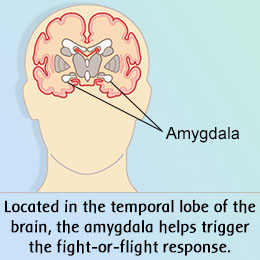
I have a real bone of contention about boxes, I don’t mean the boxes which gifts arrive in or purchases from Amazon or boxes which store our possessions while we move house, on the contrary, I once worked in a factory where I made and packed boxes into other boxes, a repetitive and monotonous job which gave me lots of time to develop my thoughts about boxes. I’m talking about the boxes we tick on the forms we fill in, whether they are application forms for school, college, university or work, or registration forms at the doctors, dentist, job centre etc. These boxes force us to identify with concepts such as race, gender, sexuality which are divided up into discrete homogenous and often binary terms such as male or female. We attribute features to these concepts, which help us to predict individual’s behaviours and responses to us, such as warm, kind and nurturing for a female and dominant, confident and strong for a male, these are stereotypes, each culture I’m sure has its own. These stereotypes are then available as cognitive shortcuts to help us make decisions about people without any conscious effort. Which is great, because it leaves our cognitive resources available to think about more important stuff like Facebook, and what to make for dinner, and what to wear on Friday night so that I look great but not like I’m trying too hard, or whether the universe is a projection from a black hole or just a bubble in a series of bubbles.
However, I see a problem or two with this, firstly, the very act of categorising ourselves in this way creates divisions and according to, oh so much psychological research, this is the minimal condition for in-group bias and out-group discrimination to occur. Which basically means that people who tick the same box as you, in any given category will treat you better than they treat those that don’t tick that box. This works both ways, of course, those who tick the other box will be less generous towards you as they will favour the people who tick the same box as them. Also, mere categorisation of ‘us’ and ‘them’ causes us to exaggerate the differences between members of our group and the members of their group. This applies to gender, ethnicity, nationality, sexuality, age class and ‘race’ which is a term I particularly take issue with as I refuse to recognise that the human race has such sub-divisions. However, I acknowledge people have racial identities, I believe that these like all identity positions are socially constructed through language and discourse and maintained by subscribing to these concepts and ticking the boxes available. This doesn’t necessarily mean that one group will deliberately favour other members of their group. No, this happens unconsciously so a white male is more likely to give another white male a job or a promotion than say a black male or a female, (oops the feminist slipped out).
Secondly, group relations are power relations, which becomes a problem when one group has more power than another group and yet has a bias toward helping members of their own group in favour of members of other groups. Can you see how this could lead to inequalities such as the distribution of resources, jobs, promotions, and equal pay? Not only can members of dominant groups abuse their power if they so desired they could also unconsciously prevent members of other groups from advancing their positions. Especially in societies where the majority rules, like the democratic ones in the UK and USA. It isn’t in the interest of the dominant group to advance the position of the subordinate ones. In fact, it is directly against their interests and most of us humans are self-interested and egotistical, at least in capitalist societies such as the UK and USA where competition and individualism are encouraged and altruism, dependency and collectivism strongly discouraged.
Thirdly, we all have these cognitive biases, like stereotypes, that we rely on, our families, friendship groups, neighbourhood, education, society, religion, culture, and in our day and age especially, the media all contribute to creating them and maintaining them. Some really cool experiments with brain scans have revealed that when we see a member of our ‘out-group’, that’s somebody who didn’t tick the same box as us on some form because they were either born in a different country or happened to be a different colour, gender or sexuality to us by birth, the amygdala lights up, a primitive emotional response tells us to beware.

Sometimes, people become extreme in their attachment to their own group and discrimination of other groups, often if there is a perceived threat to their own group or members of their group, it can spill over into prejudice and conflict, there are plenty of examples of genocide throughout history premised on the idea that one group is superior to another. There is good news though, education can dampen down this unconscious response and we can consciously override our unconscious biases if we make the effort to see all people as individuals with a whole set of variable social identities, rather than social objects that can be grouped together like they are a homogenous group with fixed attributes. Unfortunately, to be conscious of your thinking processes takes effort and higher cognitive functions which I don’t think racists, sexists or homophobes have.

